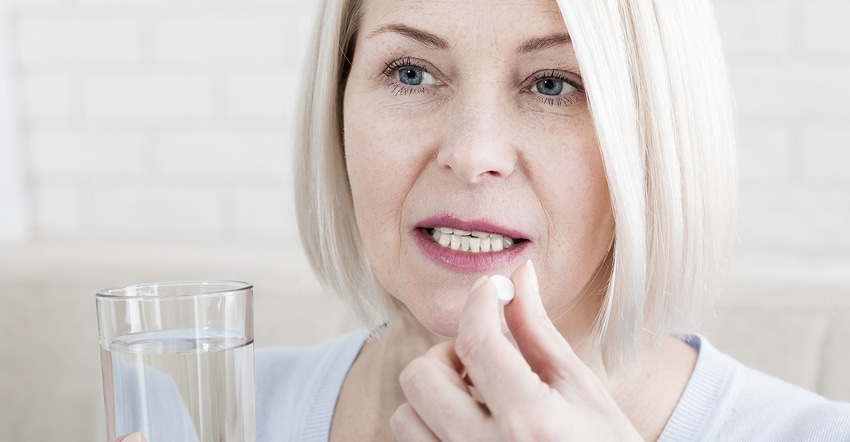The most notorious symptom of menopause is the hot flash. Thankfully, there are ingredients that can help women manage these and other aggravating symptoms.

At a Glance
- Menopause supplements are up 19%.
- The entire process, from pre to post, can last two to three decades.
- This creates an extraordinarily vibrant market for new product development.
They most certainly are not ready for the rocking chair, thank you very much. Today’s menopausal woman is raring to go, grow and thrive. She looks and feels youthful and does whatever it takes to support her health and vitality.
The problem is those pesky symptoms, such as the queen of all menopause markers—hot flashes. Some stats courtesy of the National Menopause Foundation show incredible opportunity in this segment: 75% of women experience hot flashes and 62% proclaim that menopause symptoms (i.e., vaginal dryness) interfere with their quality of life. According to 2022 data, more than 1.3 million women in the US enter menopause each year and their average age is only 51.
Innova Market Insights research shows that each year between 2018 and 2022, supplement launches with “menopause” in their descriptions leapt 19% globally.
Most women will begin to feel the symptoms of perimenopause from 8 to 10 years prior to the actual menopause, pointed out Nena Dockery, Scientific Affairs Manager, Stratum Nutrition. “So, the entire transition can feasibly last two to three decades,” she said.
Annie Eng, CEO of HP Ingredients, emphasized that menopause is no longer viewed negatively by women today. “Women going through menopause today understand it’s just a normal part of womanhood,” she said. “They are focused on creating balance that provide symptom relief, as well as long-term cardiovascular and bone health.”
And the symptoms are more than just the incredibly uncomfortable hot flashes. According to Michael Chernyak, President, CK Nutraceuticals, there are more than 40 symptoms that women may experience during this life stage, and with varying degrees of severity. “Menopause is really a quality-of-life story,” he said.
This creates an extraordinarily vibrant market for new product development. “The rising prevalence of vasomotor and menopausal symptoms such as night sweats and hot flashes among women during the menopausal transition is projected to propel the market growth,” observed Stacey Smith, DC, Marketing and Communications Manager NORAM with Gnosis by Lesaffre.
In addition, symptoms such as mood swings, difficulty concentrating, and depression are associated with menopause. As per a 2020 study published in the International Journal of Applied & Basic Medical Research, around 36.7% of women reported hot flashes among 87.7% of women reporting menopausal symptoms. The major symptom reported was anxiety, which accounted for 80%, and sleep issues accounted for 61.2%.
While hormonal therapy is still widely used throughout the globe, nutraceuticals are sought after to re-calibrate the body and mind equilibrium, according to Stefania Zanzottera, Marketing Manager of Roelmi HPC SRL. She noted that there are quality ingredients that support menopausal symptoms such as fatigue, sleep disturbances and mood fluctuations. “Some others aim to keep vaginal tissues hydrated, soothe inflammation and help epithelium recovery.”
A recent survey conducted by PanTheryx (parent company of TruBiotics) among women to better understand their attitudes and perceptions on aging found that digestive health challenges rank high among women during their menopause years. Digestive challenges were cited by 21% of women aged 43 to 58, reported Pam Cebulski, general manager of consumer brands and SVP marketing.
Download the free Natural Products Insider digital magazine on women’s health to continue reading this story for insights on:
Vaginal support with probiotics—and non-probiotics
Cooling hot flashes with vitamins and botanicals
Joints, sleep, bones and heart health ingredients
Read more about:
Supplement scienceAbout the Author(s)
You May Also Like






.png?width=800&auto=webp&quality=80&disable=upscale)